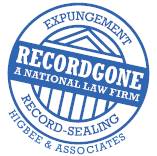On July 9th, Governor Mike Parson signed into law Missouri Senate Bill 1. This bill, sponsored by State Senator S. Kiki Curls, will allow four additional offenses to be expunged under Missouri’s expungement statute. On and after August 28, 2019, an individual with a conviction for property damage in the first degree, stealing, possession of a forging instrumentality, and fraudulent use of a credit device or debit device will be able to seek expungement under the law, as long as the other elements of eligibility are met.
This amendment comes on the heels of Missouri’s last update to expungement law in 2016. Senator Curls said regarding the bill, “We are hoping every year we can chip away a little more and add additional offenses to the list.” Senate Bill 1 is a demonstration by the state that it is continuing to find ways to allow more deserving people to clear their past so they may pursue a full future.
Three Fundamental Parts to Missouri Expungement Eligibility
Missouri expungement eligibility can be distilled into three fundamental parts: the excluded offenses list, the six criteria, and the number of convictions. The excluded offense list is the first roadblock any potential applicant for expungement must overcome before moving on to the other part of the eligibility test.
SB 1 solely addresses this part of the expungement law. It grants passage to the six criteria section of the test for an additional set of former offenders who were previously excluded. While this law strictly modifies the excluded offenses list, it is still worth reiterating the other key parts of expungement eligibility. It is important that those now removed from the excluded list know what other requirements they will face when seeking expungement.
Once the applicant’s offense is determined to be absent from the excluded offense list, the applicant will then be evaluated based on six criteria. Four of the criteria are objective and easily demonstrated one way or the other, but two of the criteria are more subjective in nature. The objective four criteria are: has the statutory waiting period of seven years for a felony or three years for a misdemeanor since the date of disposition imposed; has the person been found guilty of additional offenses during the waiting period; has the petitioner satisfied all sentence requirements, including any financial requirements; and does the petitioner have charges pending. The two subjective criteria are: does the petitioner’s habits and conduct show them to not be a threat to the public; and is the expungement consistent with the public welfare and in the interests of justice.
It is with the two subjective criteria that having legal representation can be very valuable to an applicant. It is with these two criteria that the prosecutor’s office can object on and provide argument against an applicant in a more subjective manner. And that is where having a legal representative can help. A professional legal representative can push back on the prosecutor’s arguments, and they will highlight portions of an applicant’s life that can clearly demonstrate a lack of threat to public safety and an overall deservingness for relief that is consistent with public welfare.
If an applicant satisfies the six criteria, then the court shall grant the expungement request, as long as the applicant does not exceed the allowable number of offenses to be expunged. An applicant can have no more than two misdemeanors or ordinance violations that carry a defined term of imprisonment, and they can have only one felony. Infractions carry no limitations on the number that can be expunged.
How to Move Forward With Expungement
If you are someone newly eligible to seek expungement because your offense for property damage in the first degree, stealing, possession of a forging instrumentality, or fraudulent use of a credit device or debit device is no longer included in the ineligible offense list, please remember that there are still other elements that must be satisfied before your expungement petition can be successful. Our law firm has spent years helping clients demonstrate that they are unlikely to harm public safety and that their expungement would be consistent with the public welfare.
We understand that people change and that they do not deserve to walk around with the scarlet letter of a criminal record forever. Allow us to help you achieve the new opportunities that open up once an expungement is earned. Contact us at (877) 573-7273 or take our free eligibility test online anytime. Even though the law does not go into effect until August 28, 2019, we can still begin the process now!



